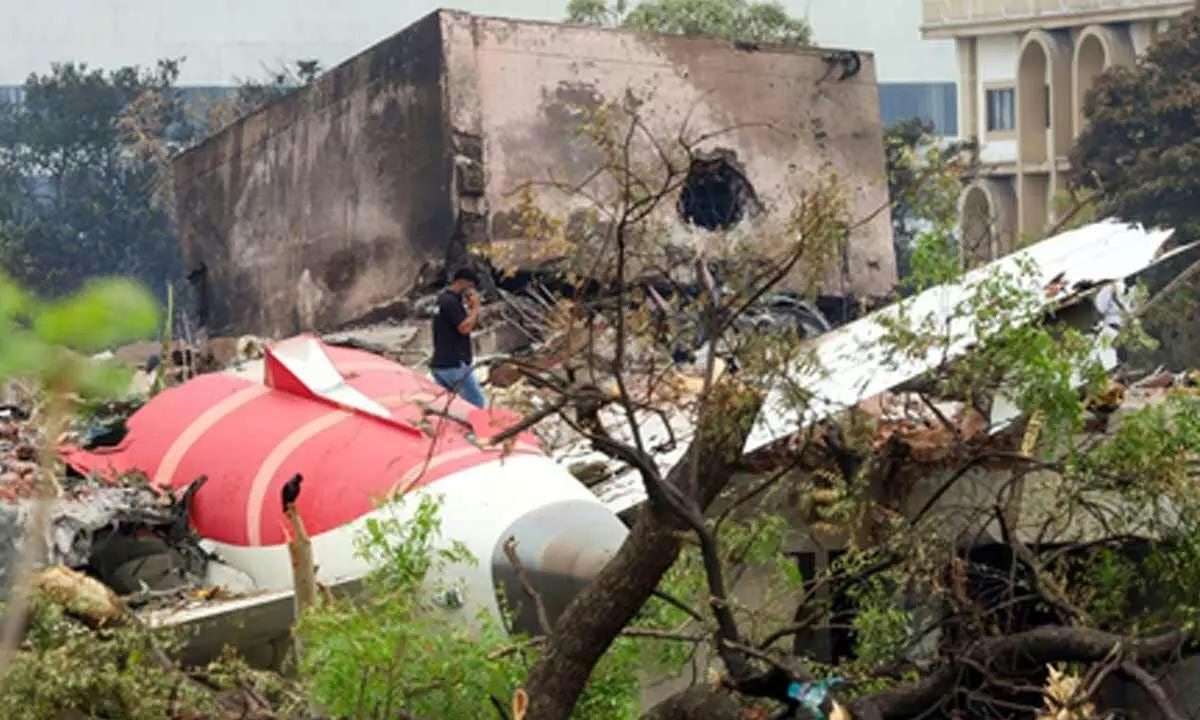AeroGenie — 您的智能副驾驶。
热门趋势
Categories
Former AAIB Chief Says It’s Too Early to Assess Pilot’s Role in AI Plane Crash

Former AAIB Chief Urges Caution in Assessing Pilot’s Role in Air India Crash
New Delhi, July 13 — It remains premature to draw definitive conclusions regarding the pilots’ involvement in last month’s tragic Air India flight 171 crash, according to Aurobindo Handa, former chief of the Aircraft Accident Investigation Bureau (AAIB). The fatal accident, which claimed 260 lives, is still under thorough investigation, and Handa stressed that only the final report will establish the most probable cause.
Having led investigations into over 100 aircraft accidents, including the 2020 Air India Express crash in Kozhikode, Handa called for patience and restraint following the release of the AAIB’s preliminary findings. Speaking a day after the bureau published its initial report, he urged that the investigation be allowed to proceed in a fair, unbiased, and transparent manner.
Preliminary Findings and Pilot Details
The preliminary report disclosed that the fuel switches on the Boeing 787-8 involved in the crash were turned off within a second of each other and subsequently reactivated. Cockpit voice recordings captured an exchange between the two pilots, with one questioning the other about the fuel switch being cut off, and the second denying responsibility. The report did not clarify which pilot made each statement.
On the ill-fated flight from Ahmedabad to London Gatwick, First Officer Clive Kundar, aged 32, was the Pilot Flying (PF), while Captain Sumeet Sabharwal, 56, served as Pilot In Command (PIC) and Pilot Monitoring (PM). Sabharwal had accumulated over 8,596 hours on the 787, including 8,260 hours as PIC, whereas Kundar had logged 1,128 hours on the aircraft. Both pilots reportedly had adequate rest prior to the flight.
Handa cautioned against speculation, particularly in some foreign media outlets that have suggested pilot error. He appealed to experienced aviators and commentators to refrain from conjecture until the investigation is complete.
Ongoing Investigation and Industry Implications
The crash occurred shortly after takeoff when the aircraft struck a building, resulting in only one survivor among 242 occupants. The investigation is now focused on understanding why the fuel switches were manipulated and whether mechanical or electrical failures played a role.
Handa emphasized that the forthcoming stages of the AAIB inquiry will be critical in elucidating these technical factors. The tragedy has intensified scrutiny of airline safety standards, especially amid recent incidents such as a technical malfunction on a Thai Lion Air flight, which have heightened concerns about operational reliability.
The aviation industry faces mounting pressure to reinforce safety protocols and maintain public confidence. Airlines are expected to enhance communication and transparency in response to such events. Market reactions have mirrored investor apprehensions regarding safety, while competitors may seek to highlight their own safety measures to reassure passengers.
As the investigation progresses, both industry stakeholders and the public await comprehensive findings to fully understand the causes behind the Air India crash.

Capital A Completes Sale of Aviation Business to AirAsia X

Four Gateway Towns to Lake Clark National Park

PRM Assist Secures €500,000 in Funding

Should Travelers Pay More for Human Support When Plans Go Wrong?

InterGlobe Aviation Shares Rise 4.3% Following January Portfolio Rebalancing

Key Market Segments Shaping Airline Route Profitability Software

Locatory.com Gains Traction Among Aviation MROs and Suppliers

JetBlue Flight Makes Emergency Landing Following Engine Failure

58 Pilots Graduate from Ethiopian University

The Engine Behind Boeing’s Latest Widebody Aircraft
